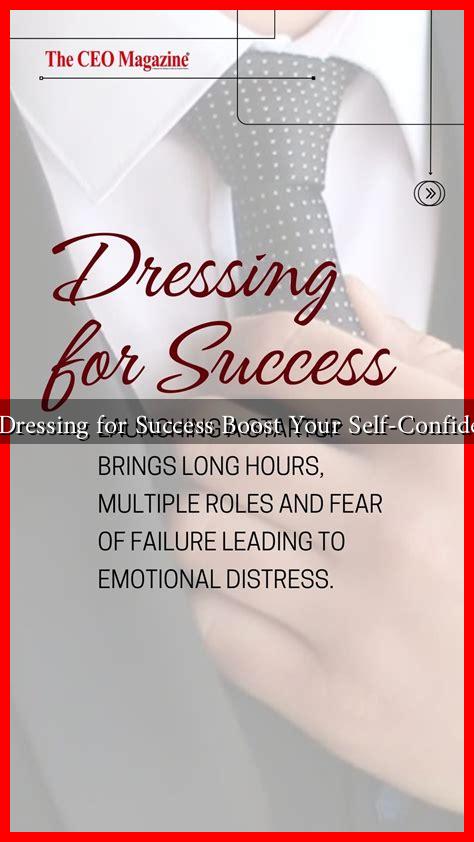-
Table of Contents
Can Dressing for Success Boost Your Self-Confidence?
In a world where first impressions matter, the phrase “dress for success” has become a mantra for many professionals. But does dressing well truly enhance self-confidence? This article delves into the psychological and social implications of dressing for success, supported by research, case studies, and practical examples.
The Psychology of Clothing
Clothing is not just a means of protection against the elements; it serves as a powerful form of self-expression. According to a study published in the journal Social Psychological and Personality Science, what we wear can significantly influence our thoughts, feelings, and behaviors. This phenomenon is known as “enclothed cognition,” which suggests that clothing can affect our psychological state and self-perception.
How Dressing Well Impacts Self-Confidence
When individuals dress in a way that aligns with their professional goals or personal aspirations, they often experience a boost in self-confidence. Here are some ways in which dressing for success can enhance self-esteem:
- Positive Self-Image: Wearing well-fitted, stylish clothing can improve how individuals perceive themselves. A positive self-image often translates into increased confidence in social and professional settings.
- Social Perception: People tend to judge others based on their appearance. Dressing well can lead to more favorable evaluations from peers, which can further enhance self-esteem.
- Mindset Shift: Dressing for success can create a psychological shift, prompting individuals to adopt a more professional mindset. This shift can lead to improved performance in various tasks.
Case Studies and Real-World Examples
Numerous case studies illustrate the impact of dressing for success on self-confidence:
- Corporate Executives: A study conducted by the Forbes Coaches Council found that corporate executives who dressed in tailored suits reported feeling more authoritative and confident during meetings.
- Job Interviews: Research from the American Psychological Association indicates that candidates who dressed professionally for job interviews were perceived as more competent and were more likely to receive job offers.
- Everyday Life: A survey by the clothing brand Marks & Spencer revealed that 70% of respondents felt more confident when wearing clothes that made them feel good about themselves.
Practical Tips for Dressing for Success
To harness the power of dressing for success, consider the following tips:
- Know Your Audience: Tailor your outfit to the environment you are in, whether it’s a corporate office, a creative space, or a casual gathering.
- Invest in Quality: Quality clothing often fits better and lasts longer, contributing to a polished appearance.
- Accessorize Wisely: Accessories can elevate an outfit, but they should complement rather than overwhelm your look.
- Stay True to Yourself: Choose styles that reflect your personality and make you feel comfortable.
Conclusion
In conclusion, dressing for success can indeed boost self-confidence. The psychological effects of clothing, combined with social perceptions and personal experiences, create a compelling case for the importance of appearance in professional and personal settings. By understanding the impact of clothing on self-esteem and adopting strategies to dress effectively, individuals can enhance their confidence and improve their overall performance. Remember, the way you dress is not just about aesthetics; it’s a powerful tool that can shape your self-perception and influence how others perceive you.


